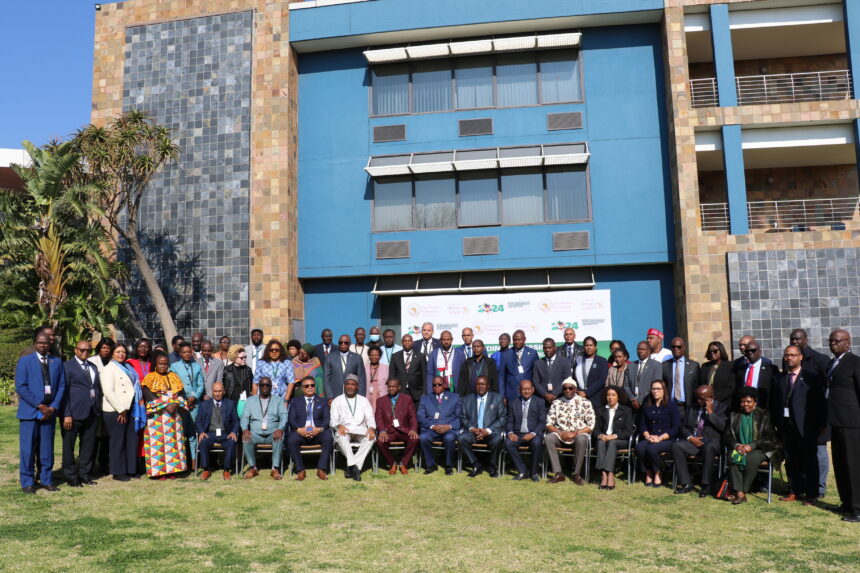Noreen Sitali
MIDRAND – The third ordinary session of the sixth Pan-African Parliament, which is underway at the Parliament’s headquarters in Midrand, is zeroing in on the state of education on the continent.
Chiefly, the body is looking at tangible ways to catalyse the transformation of continental education in Africa.
This year’s gathering is held under the theme ‘The Year of Education: Educate an African Fit for the 21st Century: Building Resilient Education Systems for Increased Access to Inclusive, Lifelong, Quality and Relevant Learning in Africa’.
It runs from 24 June to 5 July 2024.
As a continental parliament, PAP plays an important role in ensuring the African Union’s policies and treaties are translated into national legislation, and enforced by member states.
The theme aims to look at tangible ways to catalyse the transformation of continental education in Africa.
Parliamentarians are urged to identify and mitigate the role of advocacy, and African countries and parliaments are urged to come together on how parliaments could play a key role in education on the continent.
“How can we improve our education system when we talk about being self-reliant?” PAP president Fortune Charumbira said during the official
opening of the seminar.
PAP implores that despite the significant progress made in Africa over the past two decades in terms of access, completion and quality of basic education, disparities persist within and between countries. “In most countries, learning achievement remains low. Girls, children from the poorest backgrounds, children with disabilities and children on the move, such as those who are forcibly displaced, face difficulties in realising their right to education,” Charumbira said as he called on member states to help PAP promote the African Union’s theme for 2024.
Inclusivity
A parliamentarian from Eswatini unpacked the theme of inclusivity, urging member countries to consider inclusivity as an important part of the theme, especially children with disabilities and marginalised people who, she said, are not considered or taken seriously in the education sector.
“Education is a human right recognised under the African Charter,” stressed the MP.
As such, member states are urged to promote education, especially for the girl child, who is still sidelined when it comes to education, and in some warzone countries where children are displaced. Meanwhile, civil society ha been urged to get involved and not leave the responsibility entirely to governments.
“TVET has been hailed as a relevant form of education; let us ensure that education is inclusive for all. It’s time to achieve this goal, and that cannot happen without peace and security. Why not put in place strategic plans? This is a question to the AU,” an Algerian parliamentarian said.
The majority agreed that reforms in curricula are what will mould the education sector of tomorrow, stating that member states need to pay more attention to the gaps to avoid losing on the “one Africa, one voice” mantra.
PAP further underscored that many African countries are undergoing curriculum reform to make education more relevant to the needs of their societies and economies. The emphasis is now being placed on STEM (science, technology, engineering, and mathematics) education, vocational training, and incorporating information and communication technology into the curriculum of the African child.
Furthermore, Africa has yet to fully embrace competency-based education, which should ensure students acquire practical and employable skills by 2030. According to Unesco estimates, sub-Saharan Africa alone needs to recruit about 17 million teachers to achieve universal primary and secondary education.
Parliamentarians were urged to find working methods within their respective countries to tackle education and build resilient education systems for increased access to inclusive, lifelong, quality and relevant learning in Africa.
PAP believes implementing progressive policies to support equitable access, continuous teacher development and infrastructure investment is crucial for maintaining high-quality education.
Adopting these measures will equip Africans with the necessary skills for the 21st century.
PAP was established as an organ of the African Union to ensure the full participation of African people in the development and economic integration of the continent.
Namibia is a member of PAP, represented currently by parliamentarians Loide Kasingo, McHenry Venaani, Gerhard Shiimi, Hamunyera Hambyuka and Bernadus Swartbooi.
-Noreen Sitali works in the National Assembly’s Research, Information, Publications
and Editorial Services Directorate.


